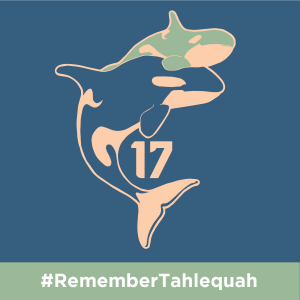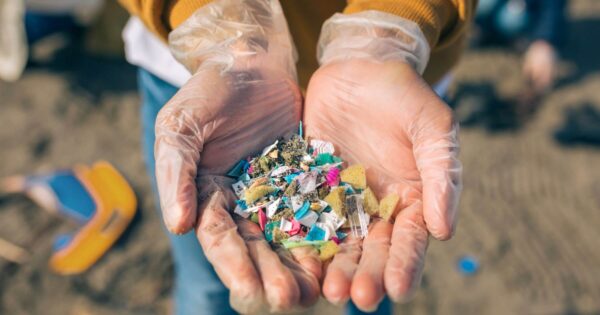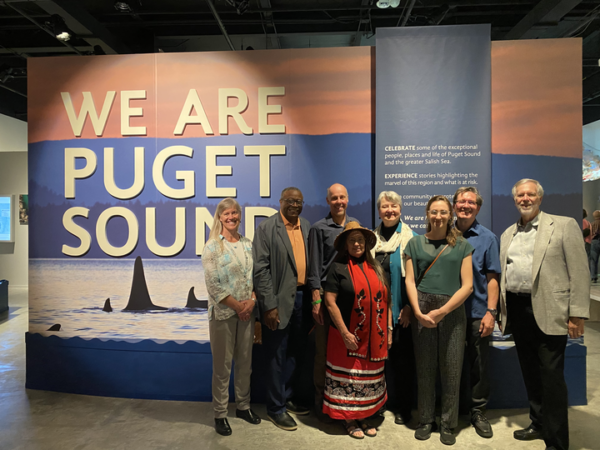For seventeen days this summer, a young orca mother’s unprecedented grief reminded all of us the immediate threats that southern resident orcas face. Then a few weeks later, Scarlet (J50) succumbed to starvation, despite an unprecedented, cross-border effort to save her.
The heart-wrenching photos of Tahlequah (J35) carrying her dead calf on her head and the death of beloved Scarlet (J50) flooded social media and touched people deeply all over the world. The southern resident orcas are starving to death, approaching such low population numbers that extinction is no longer hyperbole. We face a generational obligation to act. Now.
When orcas go hungry, their bodies release toxics that have accumulated in their blubber, further damaging their health and the health of their calves. Toxics also impact the survival of salmon and forage fish that should sustain orcas. Noise and disruption from vessels interferes with their abilities to forage using echolocation for the dwindling chinook salmon that have sustained them for thousands of years. And one oil spill in the Salish Sea could deal the final blow to the population.
These are the threats the Orca Recovery Task Force must address with bold, effective recommendations for action.
WEC applauds the comprehensive set of potential recommendations developed by the task force. We need your help to reiterate the need for comprehensive actions.
 To date, the recommendations range from relatively simple and actionable right away, to complex and ambitious actions that will take time and persistence to see results. The combination of proposed short-and-long-term solutions reflects the urgency and large scale of the challenge in front of us.
To date, the recommendations range from relatively simple and actionable right away, to complex and ambitious actions that will take time and persistence to see results. The combination of proposed short-and-long-term solutions reflects the urgency and large scale of the challenge in front of us.
No single action will turn the tide for Southern resident orcas. For orcas to survive now and thrive into the future we will need to take many actions. Together these actions must add up to stop their decline and create the conditions for their long-term recovery. We need to keep all the options on the table, but let’s focus first on measures that enjoy broad support and can start making a difference for orcas right away.
The Task Force will provide the Governor a final report and list of immediate recommendations for action by November 16, 2018, then will continue into 2019.
Immediate need: Help the orcas by using your voice in the October 24-29 public comment period.
WEC’s actions to support orca recovery
WEC and our partners have been pushing for orca protection and recovery since 1972 when we testified against orca capture in Puget Sound. Today, WEC is working with a variety of people and organizations to craft solutions that will stop the desperate decline. Together, we can make this a priority for decision makers and begin the long path to change how each one of us impacts orcas.
- Orca Recovery Task Force – Governor Inslee appointed WEC to serve on the Orca Recovery Task Force, a group of organizations that will make two sets of recommendations for action. The task force has met since May 2018 – a short time frame to develop nuanced and effective policy recommendations but we simply have to succeed. The Task Force will provide the Governor a finalize report and list of immediate recommendations for action by November 16. In fall of 2019, a second set of recommendations will focus on 2020 and beyond. Again, we will need the public to amplify the value of orcas to our region.
- Contaminants Work Group – WEC also serves on the Orca Recovery Task Force work group identifying actions needed to reduce the levels of toxics in fish. Toxics such as PCBs, flame retardants, polycyclic aromatic hydrocarbons, and more accumulate in the fatty tissue of fish that then impact the health of orcas. The same chemicals are also toxic to people, which is why sensitive people like pregnant women and communities that consume more fish than others must limit the fish they eat. And we are now learning that these toxics can kill juvenile salmon, limiting the orcas’ food supply, as well as herring that then feed the salmon. We continue our long-term commitment to reduce stormwater pollution and clean up toxic pollution by pushing for strong policy and adequately funding effective programs.
- 2019 Legislative Session – We are working diligently to identify policy and funding actions that will increase food, reduce pollution, as well as vessel noise and harassment, and reduce threats from oil spills. WEC and many partners will be pursuing actions that implement and strengthen recommendations from the Orca Recovery Task Force. January 2019 is right around the corner.
- Orca Salmon Alliance – We partner with 14 organizations to prevent the extinction of southern resident orcas by recovering chinook populations. OSA hosts Orca Awareness Month every June to raise awareness. In 2016 we celebrated the birth of 6 calves, only to mourn their deaths and the lack of any successful pregnancies among the J, K, and L pods since that time. OSA has been a constant voice on behalf of the orcas and will continue to remind the task force and our leaders that we simply cannot allow the extinction of southern resident orcas. Help engage the public on what orcas and salmon need to survive.



